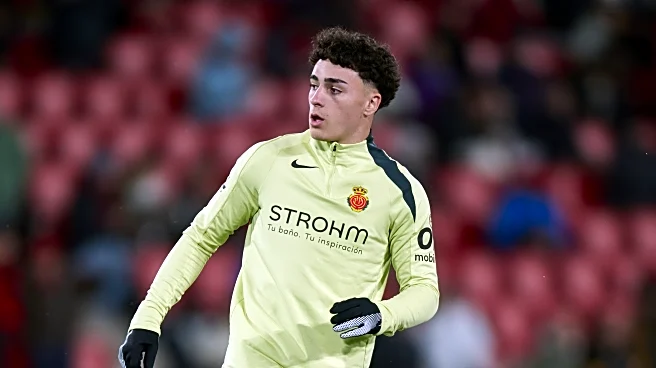What's Happening?
Diana Taurasi, the WNBA's all-time leading scorer, is embracing her retirement by focusing on family and personal interests. Since retiring in February, Taurasi has been spending quality time with her family, including vacations to Hawaii and Australia.
She is also preparing for Halloween with her children, who plan to dress as K-Pop Demon Hunters. Additionally, Taurasi has rekindled her interest in golf, a hobby she had set aside due to back surgery. While she remains active, Taurasi has not committed to joining the new Project B basketball league, which is set to launch in 2026. Her current focus includes a partnership with Sanofi and Regeneron to raise awareness about moderate-to-severe eczema.
Why It's Important?
Taurasi's transition from professional sports to personal pursuits highlights the evolving roles of athletes post-retirement. Her involvement in family activities and advocacy work reflects a broader trend of athletes leveraging their platforms for social causes. This shift can influence public perceptions of retired athletes, showcasing their potential to impact society beyond sports. Taurasi's decision to remain non-committal about joining new leagues also underscores the diverse opportunities available to retired athletes, allowing them to explore various interests and causes.
What's Next?
As Taurasi continues to navigate her post-retirement life, her decisions may inspire other athletes considering their futures beyond sports. Her involvement in advocacy and potential participation in new leagues could set a precedent for how retired athletes engage with both personal and professional opportunities. The sports community and fans may watch closely to see how Taurasi balances these roles and what impact she will have in her new endeavors.
Beyond the Headlines
Taurasi's story also touches on the cultural and societal expectations of retired athletes. Her focus on family and advocacy work challenges traditional narratives that often limit athletes to their sports careers. This broader perspective can encourage a more holistic view of athletes' contributions to society, emphasizing their roles as family members, advocates, and community leaders.
















